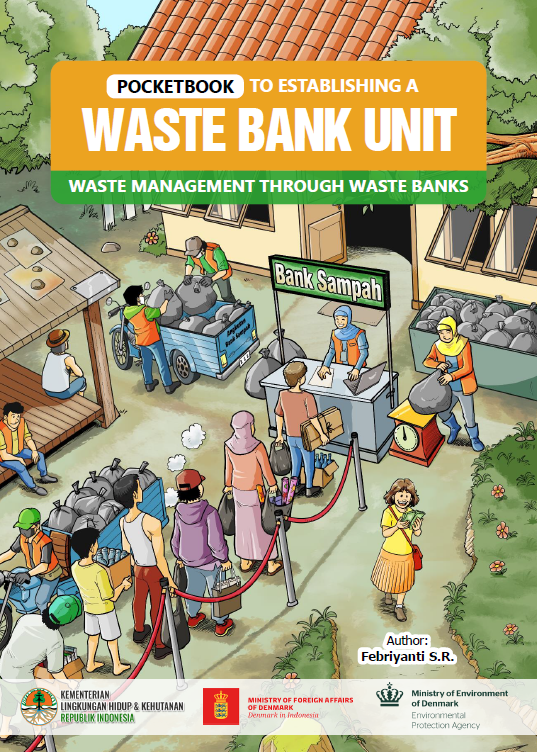In collaboration with the Embassy of Denmark, the Ministry of Environment and Forestry has compiled the Pocket Guide for Establishing a Waste Bank Unit to encourage the growth of waste bank units at the community level. Through this pocket guide, I hope it can serve as a reference for communities and local governments so it can be easier to establish waste bank units.
Since 2018, Indonesia and Denmark have worked closely together on a strategic environmental sector cooperation, which aims to support a transition towards a stronger circular economy and robust waste management in Indonesia. The cooperation is based on exchanging knowledge and expertise between national authorities on circular economy, extended producer responsibility, and waste/resource management. The cooperation focuses on policy dialogue, sector governance, advice, and the exchange of experiences and lessons learned within these fields.
This guideline has been prepared as a contribution to local initiatives on circular economy and waste management to strengthen local work in establishing or developing existing waste banks, with a practical guide on preparing sustainable waste bank projects.
This Guideline is intended to provide practical guidance to local entrepreneurs, local communities, local governments, and municipalities across Indonesia on how to build and operate successful waste banks.
It summarises key principles and experiences for Indonesian waste banks on practical issues, economy and organisation, and sustainability principles relevant to waste management. The waste bank guideline is not only for local government officials and entrepreneurs but can also be used by decision-makers, waste planners and implementers, experts, and analysts who are in touch with the waste management system.
This Guideline will be used to develop the waste bank system in Indonesia, thereby contributing to increasing waste management and the circular economy for the overall national vision for a greener and more sustainable society and economy.


